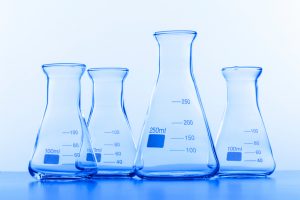Module 1: Introduction to Chemistry Concepts
Background
 Chemistry is the science of making and transforming things. Chemistry is often called the central science because it connects so strongly to other sciences, including physics, biology, engineering, medicine, materials science, and pharmacology. Chemistry 103 will meet a prerequisite requirement for many fields of study and careers. You will have an opportunity through Chemistry 103 to gain a new understanding of the complex world around you, and you will begin to learn how elements of the periodic table serve as building blocks of every substance and every process in the world and beyond.
Chemistry is the science of making and transforming things. Chemistry is often called the central science because it connects so strongly to other sciences, including physics, biology, engineering, medicine, materials science, and pharmacology. Chemistry 103 will meet a prerequisite requirement for many fields of study and careers. You will have an opportunity through Chemistry 103 to gain a new understanding of the complex world around you, and you will begin to learn how elements of the periodic table serve as building blocks of every substance and every process in the world and beyond.
Learning Objectives for Introduction to Chemistry Concepts
- Become familiar with course structures, policies, and routines.
- Develop and test hypotheses.
- Identify the prefixes, units of measurement, and conversion in chemistry.
- Relate mass, volume, and density of a substance.
- Describe characteristics of solids, liquids, and gases at the macroscopic and submicroscopic levels.
- Classify matter as elements, atoms, compounds, molecules and distinguish between chemical and physical changes.
Why is this content important?
In the news: One of the most complex scientific issues of today is climate change. Throughout Chemistry 103, we will consider how the concepts we are learning apply to this urgent problem. Here is a recent article on the current state of global warming.

